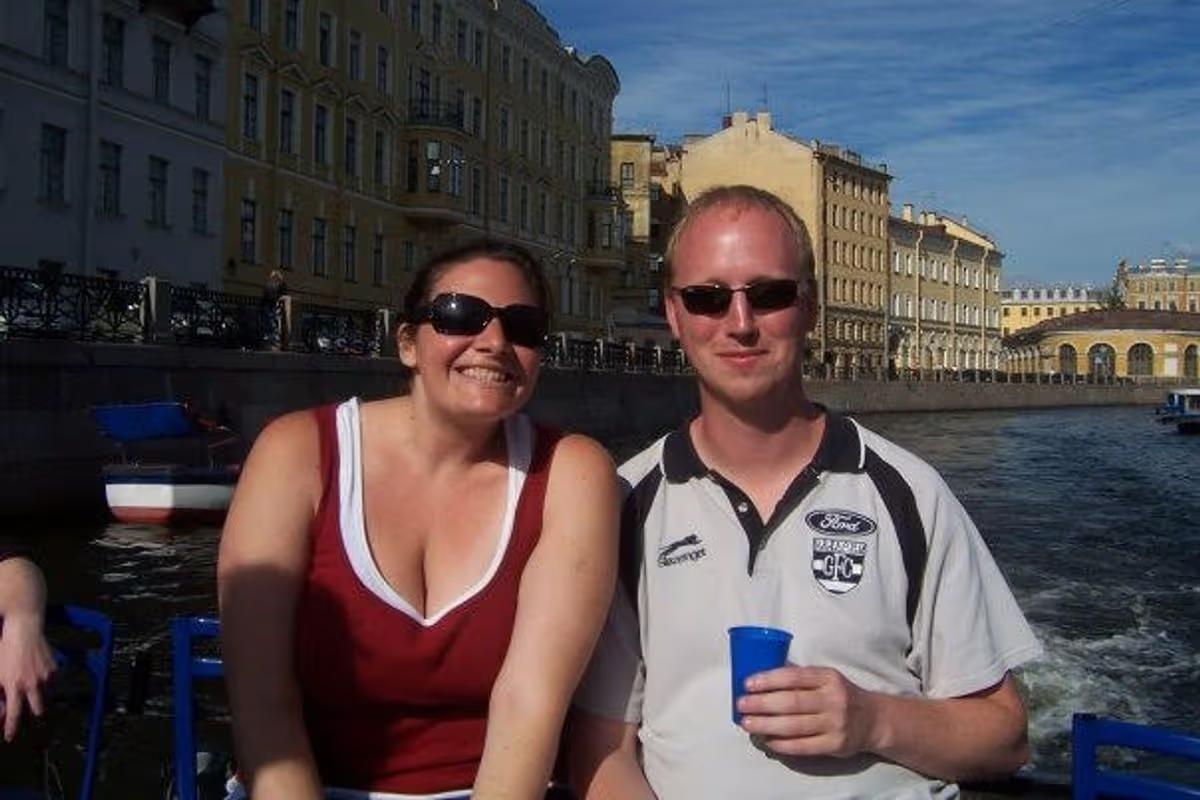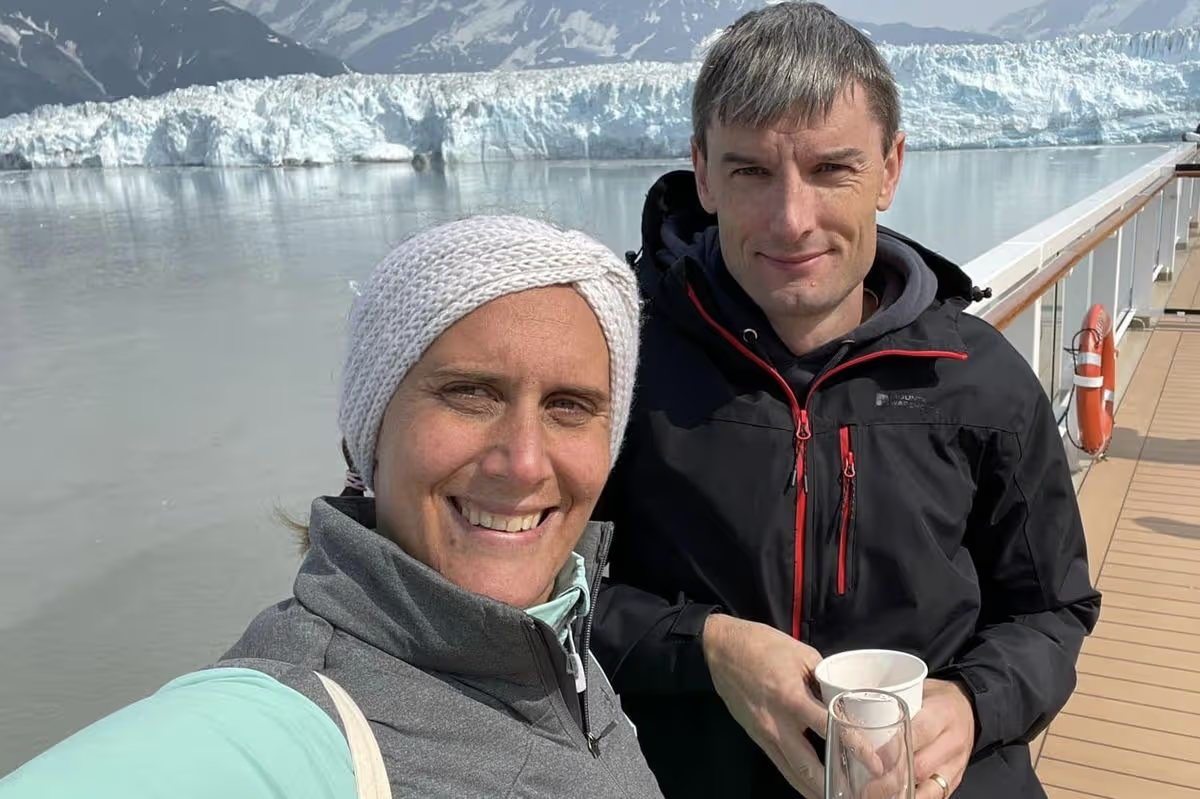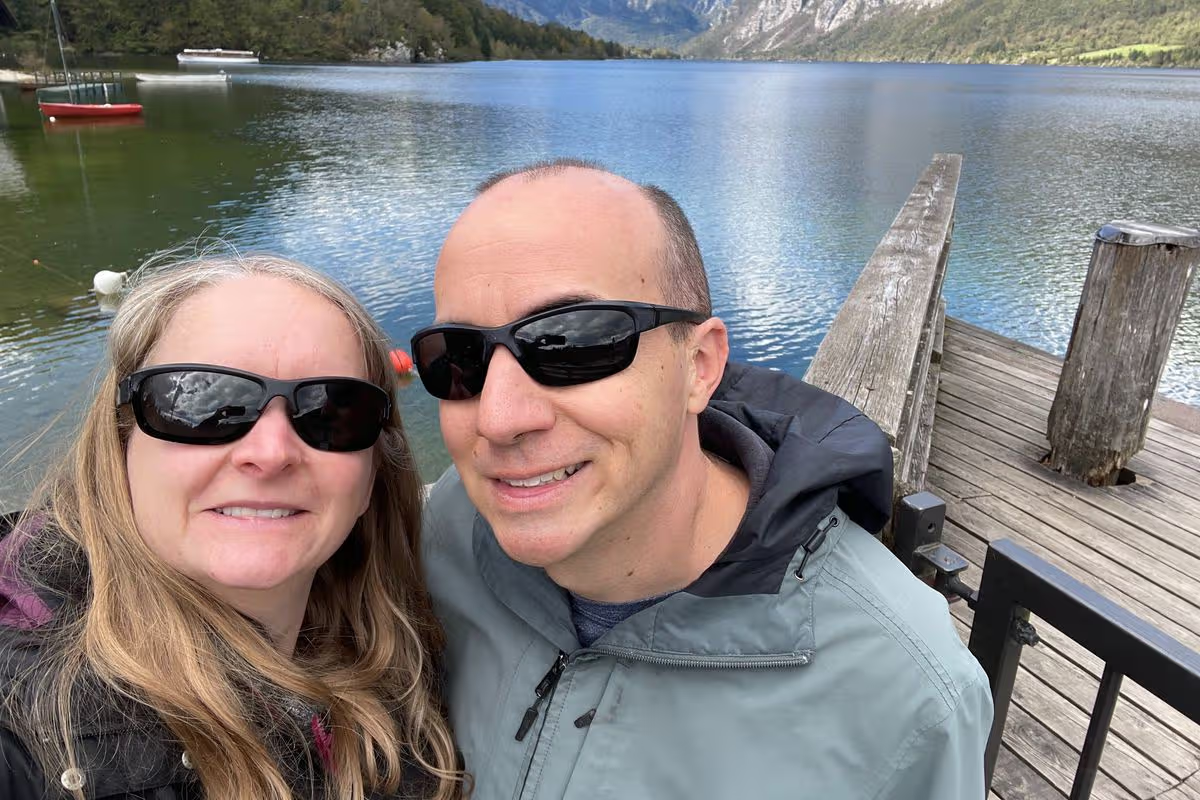Lanie van der Horst, from New York, and her now husband Mark spent years meeting up across the world after they met by chance on a trip thousands of miles from their homes
A woman moved across the world to be with the love of her life, after initially finding him annoying when their paths crossed on holiday.
Back in 2008, Lanie van der Horst, now 44, was on a Contiki tour that started in Riga, Latvia, before heading on to Russia and Scandinavia when her life changed. Living in New York City at the time, the teacher embarked on a 13-week European adventure with a pal.
“I arrived late because the flight was delayed, which meant I got to dinner late and got the last table. It was the table my now husband was sitting at.”
That Lanie and Mark’s paths would cross in such a way is pretty unlikely. Back then, there were around 6.5 billion people on the planet, which the couple lived on opposite ends of. Their homes were about 10,000 miles apart: almost as far away as any two people can live on the 24,901-mile circumference of Earth.
READ MORE: I stayed at the UK’s lowest-rated budget hotel – one paid-for feature stunned meREAD MORE: I went to opening of major new Wetherspoons – everyone says the same thing
But meet they did. Unfortunately, Mark didn’t make a great first impression.
“I thought he was an absolute idiot. He was sitting with a roommate he didn’t know. They were both very excited. They were giggly, they were young. He was 26 at the time. I’m one year older. They were talking about shooting fireworks off, drinking. Things I wasn’t interested in. Dinner was fine. I thought, ‘Of all the people, I’m not going to hang out with him’.”
Despite having made a bad first impression, Mark, now a wastewater worker, had three weeks of travelling alongside Lanie (and 12 other young holidaymakers) to make a better second one.
“You’re together a lot, and we started having different conversations. I didn’t think I was going to marry him. He said to me that I talked about real things, like my family going camping, and everyone else was talking about what they did today. It became something more during those three weeks,” Lanie continued.
“Halfway through the trip, he asked me to travel with him afterwards. I went, much to my mother’s dismay. He rearranged his trip a bit and we went to Latvia, Russia, Finland, Estonia and Denmark.”
Clearly, the extended trip was a big success.
“The first whole day we spent just together was in Tallinn. It is now my son’s middle name. That’s how much I liked it. We then added two more weeks after. In Romania and Hungary. My family is from those countries. It was fun rearranging my tour, getting to know somebody. I thought we’d part ways.”
Back at home, Mark and Lanie continued talking online, emailing and messaging one another from their respective continents. At this point, neither had much hope of being reunited.
“I told him next time I travel, I’ll go to Asia, and he said, ‘Maybe I’ll see you there’. However, by December, we were planning a trip together. It wasn’t like we had to be together. I really liked him, but I didn’t think we’d end up together.”
The pair met up in Asia the following year and booked several group tours together, in case they ended up parting. “I wanted to make sure I wasn’t by myself,” Lanie explained.
“In China, Laos, Cambodia, Thailand, Vietnam, Singapore and Malaysia. We clearly really liked each other, but I told him we were on vacation, and he didn’t know me in real life. He was so nice, and we were working so well together. Partway through, I realised I didn’t want him to leave.”
In total, Mark and Lanie travelled together for nine weeks. At the end of their Asian adventure, the American was bereft. “I cried and cried and cried and told him he had to come see me. He had to get a new job and come visit. He did,” she explained.
Mark came to the US to meet Lanie’s family at her sister’s wedding, and fit in so well that he stayed for three months. This was followed by a trip around Europe and then Central America together. “We just met up around the world,” she said.
While jetting around the world to explore together was fun, the pair eventually decided to settle down after Mark proposed in the Fraser National Park in Tasmania. They married six weeks later and started life together in New York, then in Florida, after their daughter was born.
At the start of the coronavirus pandemic, Mark realised he wanted to move back home. “He said he wanted to go to Australia, but not forever, just until the vaccine was out. I told him I wasn’t moving, then he reminded me I’m adventurous. And so we moved. With everything going on in the US I’m not going back anytime soon. I think we’re there for good.”
Do you have a story to share? Email webtravel@reachplc.com








